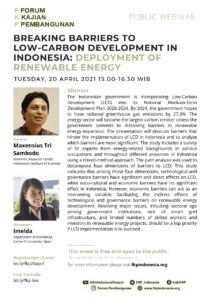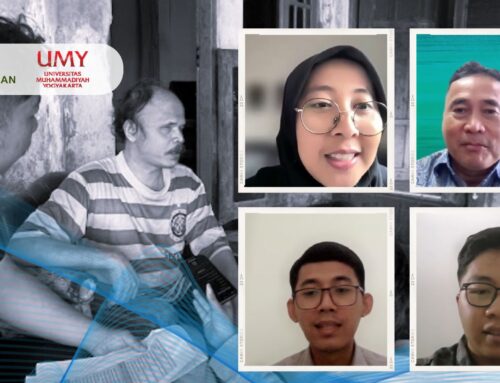
Paper presenter: Maxensius Tri Sambodo (Economic Research Center, Indonesian Institute of Sciences)
Discussant: Imelda (Department of Economics, Carlos III University, Spain)
The Indonesian government is incorporating Low-Carbon Development (LCD) into its National Medium-Term Development Plan 2020-2024. By 2024, the government hopes to have reduced greenhouse gas emissions by 27.3%. The energy sector will become the largest carbon emitter unless the government commits to dissolving barriers to renewable energy expansion. The presentation will discuss barriers that hinder the implementation of LCD in Indonesia and to analyze which barriers are most significant. The study includes a survey of 92 experts from energy-related backgrounds in various occupations and throughout different provinces in Indonesia using a mixed-method approach. The path analysis was used to decompose four dimensions of barriers to LCD. This study indicates that among those four dimensions, technological and governance barriers have significant and direct effects on LCD, while socio-cultural and economic barriers have no significant effect in Indonesia. However, economic barriers can act as an intervening variable, facilitating the indirect effects of technological and governance barriers on renewable energy development. Resolving major issues, including sectoral ego among government institutions, lack of smart grid infrastructure, and limited numbers of skilled workers and investors in renewable energy projects, should be a top priority if LCD implementation is to succeed.
Participate on Zoom (registration needed):http://bit.ly/fkp20april
or on YouTube: http://bit.ly/fkp-live
Slides and video for past seminars:




